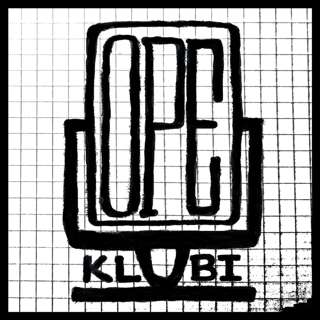
Jessie Daniels, Karen Gregory, and Tressie McMillan Cottom, eds “Digital Sociologies” (Policy Press, 2016)
How do we do sociology in the digital era? In Digital Sociologies (Policy Press, 2016) Jessie Daniels, Professor of Sociology at Hunter College and The Graduate Center, CUNY, Karen Gregory a Lecturer ...
9 Helmi 201731min

Robyn C. Spencer, “The Revolution Has Come: Black Power, Gender and the Black Panther Party in Oakland” (Duke UP, 2016)
As the first substantive account of the birthplace of the Black Panther Party (BPP), Robyn C. Spencer’s The Revolution Has Come: Black Power, Gender and the Black Panther Party in Oakland (Duke Univer...
1 Helmi 201748min

Justin Parkhurst, “The Politics of Evidence: From Evidence-Based Policy to the Good Governance of Evidence” (Routledge, 2016)
What is the role of evidence in the policy process? In The Politics of Evidence: From Evidence-Based Policy to the Good Governance of Evidence (Routledge, 2016), Justin Parkhurst, Associate Professor ...
30 Tammi 201750min

Manisha Sinha, “The Slave’s Cause: A History of Abolition” (Yale UP, 2016).
Manisha Sinha is the Draper Chair in American History at the University of Connecticut. She was born in India and received her Ph.D from Columbia University where her dissertation was nominated for th...
6 Tammi 20171h 5min

Matt Houlbrook, “Prince of Tricksters: The Incredible True Story of Netley Lucas, Gentleman Crook” (U. of Chicago Press 2016)
How should we understand the interwar years in Britain? In Prince of Tricksters: The Incredible True Story of Netley Lucas, Gentleman Crook (University of Chicago Press, 2016) Matt Houlbrook, Professo...
19 Joulu 201642min

Bill V. Mullen, “W.E.B. Du Bois: Revolutionary Across the Color Line,” (Pluto Press, 2016)
Born just five years after the abolition of slavery, W. E. B. Du Bois died the night before Martin Luther King, Jr. delivered his I Have a Dream speech at the March on Washington in 1963. In the many ...
17 Joulu 201652min

Paul Benneworth et al., “The Impact and Future of Arts and Humanities Research” (Palgrave, 2016)
What is the future for Arts and Humanities in Europe? The podcast discusses these questions with Paul Benneworth, one of the authors, along with Magnus Gulbrandsen and Ellen Hazelkorn, of The Impact a...
13 Joulu 201644min

Banu Bargu, “Starve and Immolate: The Politics of Human Weapons” (Columbia UP, 2016)
What is the relationship between state power and self-destructive violence as a mode of political resistance? In her book Starve and Immolate: The Politics of Human Weapons (Columbia University Press,...
10 Joulu 201655min

















